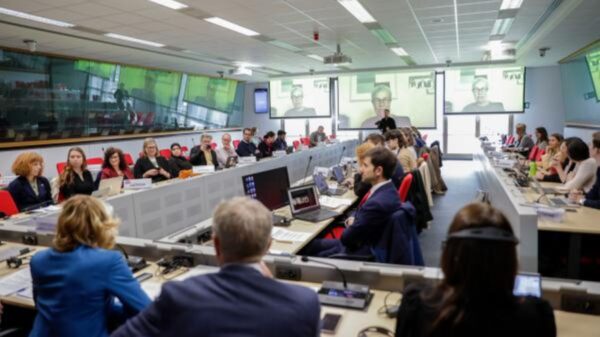BBC News, Cambridgeshire
 Jo Underhill
Jo UnderhillVisiting an art museum could change how we think about our lives, according to researchers.
A University of Cambridge study found people’s ability to think in abstract ways was boosted by admiring art.
The results were measured after a group of 187 people were encouraged to judge the beauty of artwork at a Cambridge gallery.
Study author Dr Elzė Sigutė Mikalonytė said abstract cognitive processes were being lost “in a world of screens and smartphones”.
Engaging with artistic beauty helped people escape the “mental trappings of daily life”, researchers also concluded.

 Jo Underhill
Jo UnderhillThe study participants were shown a clay exhibition at Kettle’s Yard gallery in Cambridge for the research.
One group was asked to rate the beauty of each ceramic object, while the other simply looked at the art.
Senior study author Prof Simone Schnall said ceramics were “ideal” for the research.
“A glorious painting by an old master would be too striking,” she said.
“We needed art that is subtle in form, requiring a focused contemplation of the nature of beauty.”
The group who were asked to judge the art’s beauty demonstrated more abstract thinking, compared with the group who simply looked at it.
However, they did not report feeling any happier.
Dr Mikalonytė said the tests were designed to analyse how a person was thinking.
“It’s becoming much rarer to zone out and just let the mind wander, but that’s when we think in ways that broaden our horizons,” she said.
“Admiring the beauty of art may be the ideal way to trigger the abstract cognitive processes increasingly lost in a world of screens and smartphones.”






























